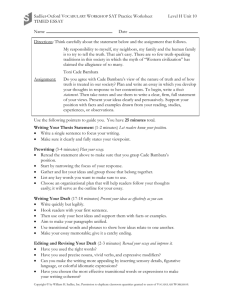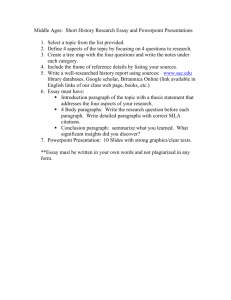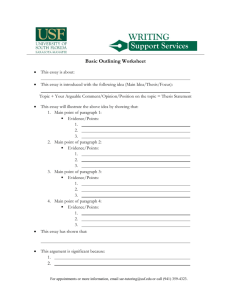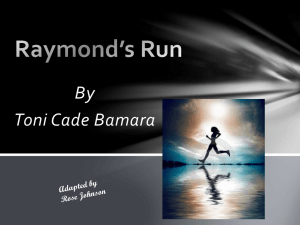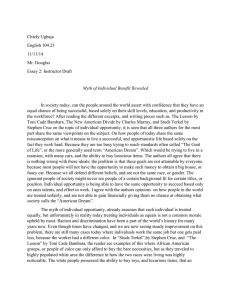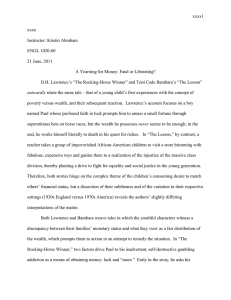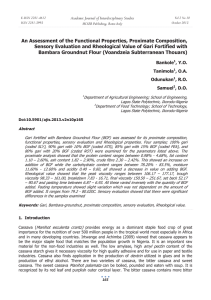Works Cited Bambara, Toni Cade. "The Lesson." Gorilla, My Love
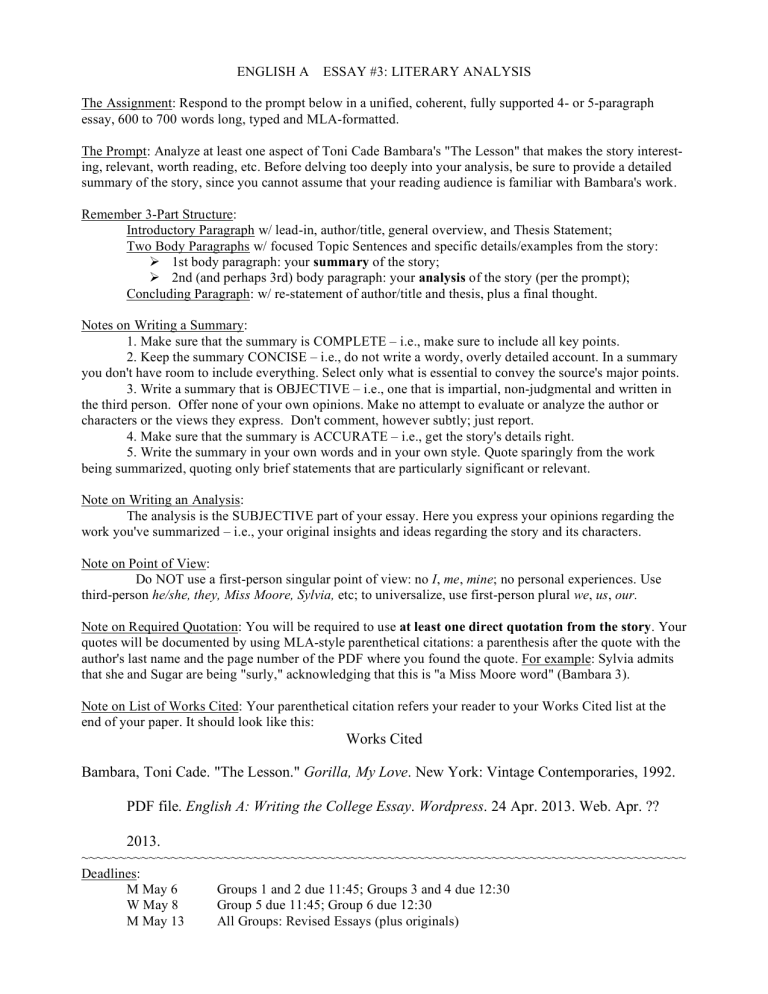
ENGLISH A ESSAY #3: LITERARY ANALYSIS
The Assignment: Respond to the prompt below in a unified, coherent, fully supported 4- or 5-paragraph essay, 600 to 700 words long, typed and MLA-formatted.
The Prompt: Analyze at least one aspect of Toni Cade Bambara's "The Lesson" that makes the story interest- ing, relevant, worth reading, etc. Before delving too deeply into your analysis, be sure to provide a detailed summary of the story, since you cannot assume that your reading audience is familiar with Bambara's work.
Remember 3-Part Structure:
Introductory Paragraph w/ lead-in, author/title, general overview, and Thesis Statement;
Two Body Paragraphs w/ focused Topic Sentences and specific details/examples from the story:
1st body paragraph: your summary of the story;
2nd (and perhaps 3rd) body paragraph: your analysis of the story (per the prompt);
Concluding Paragraph: w/ re-statement of author/title and thesis, plus a final thought.
Notes on Writing a Summary:
1. Make sure that the summary is COMPLETE – i.e., make sure to include all key points.
2. Keep the summary CONCISE – i.e., do not write a wordy, overly detailed account. In a summary you don't have room to include everything. Select only what is essential to convey the source's major points.
3. Write a summary that is OBJECTIVE – i.e., one that is impartial, non-judgmental and written in the third person. Offer none of your own opinions. Make no attempt to evaluate or analyze the author or characters or the views they express. Don't comment, however subtly; just report.
4. Make sure that the summary is ACCURATE – i.e., get the story's details right.
5. Write the summary in your own words and in your own style. Quote sparingly from the work being summarized, quoting only brief statements that are particularly significant or relevant.
Note on Writing an Analysis:
The analysis is the SUBJECTIVE part of your essay. Here you express your opinions regarding the work you've summarized – i.e., your original insights and ideas regarding the story and its characters.
Note on Point of View:
Do NOT use a first-person singular point of view: no I , me , mine ; no personal experiences. Use third-person he/she, they, Miss Moore, Sylvia, etc; to universalize, use first-person plural we , us , our.
Note on Required Quotation: You will be required to use at least one direct quotation from the story . Your quotes will be documented by using MLA-style parenthetical citations: a parenthesis after the quote with the author's last name and the page number of the PDF where you found the quote. For example: Sylvia admits that she and Sugar are being "surly," acknowledging that this is "a Miss Moore word" (Bambara 3).
Note on List of Works Cited: Your parenthetical citation refers your reader to your Works Cited list at the end of your paper. It should look like this:
Works Cited
Bambara, Toni Cade. "The Lesson." Gorilla, My Love . New York: Vintage Contemporaries, 1992.
PDF file. English A: Writing the College Essay . Wordpress . 24 Apr. 2013. Web. Apr. ??
2013.
~~~~~~~~~~~~~~~~~~~~~~~~~~~~~~~~~~~~~~~~~~~~~~~~~~~~~~~~~~~~~~~~~~~~~~~~~~~~~~~~~
Deadlines:
M May 6
W May 8
M May 13
Groups 1 and 2 due 11:45; Groups 3 and 4 due 12:30
Group 5 due 11:45; Group 6 due 12:30
All Groups: Revised Essays (plus originals)

